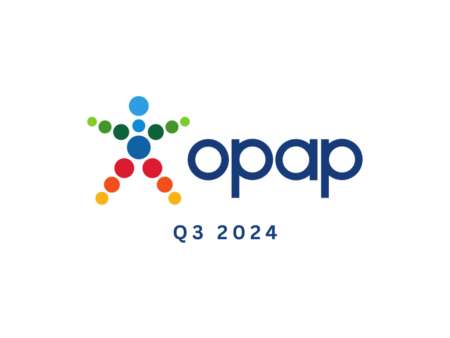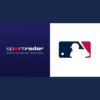The Beau Rivage Resort and Casino in Biloxi, Mississippi, has recently alerted the public about a surge in fraudulent advertisements falsely claiming that the casino now offers online gambling services. These deceptive ads, primarily found on social media platforms such as Facebook, Instagram, and Messenger, have no connection to the casino and aim to mislead unsuspecting individuals into accessing unauthorized gambling platforms.
The Spread of Fraudulent Advertisements
In a troubling development, approximately 40 fake advertisements have been identified on Facebook, with evidence suggesting similar scams across other social media platforms. These ads falsely allege that Beau Rivage is now “officially” online and offer enticing promises such as a $1,000 welcome bonus and free spins. To make the claims appear legitimate, scammers have incorporated stolen images of the casino, counterfeit slot machine tickets, and even the official Beau Rivage logo into their marketing materials.
This wave of fraudulent advertising has raised concerns among both the casino’s management and the broader community about the potential financial and reputational harm caused by such scams.
Official Response from Beau Rivage
Mary Cracchiolo, Regional Public Relations Director for Beau Rivage, confirmed that the advertisements are entirely fake and have no association with the casino. Cracchiolo emphasized the casino’s commitment to addressing the issue, stating that their legal team is actively investigating the origin of these deceptive ads.
As part of its response, Beau Rivage has urged customers to remain vigilant and to verify any promotional claims directly with the casino’s official channels.
Legal and Regulatory Perspectives
The Mississippi Gaming Commission has also weighed in on the issue. Executive Director Jay McDaniel noted that scams like these often originate from offshore operators, making them difficult to trace or prosecute. Offshore operators exploit gaps in regulatory frameworks, posing significant challenges for authorities attempting to hold them accountable.
In Mississippi, online gambling remains illegal, with the exception of sports betting conducted within casino premises. Beau Rivage itself offers the BetMGM app, which allows guests to place sports bets only while physically on-site. The app is strictly geofenced and cannot be used outside the casino, highlighting the strict regulatory environment surrounding gambling in the state.
How to Identify Fake Advertisements
Consumers are advised to exercise caution and to look for warning signs that may indicate fraudulent advertisements. Key indicators include:
- Unverified Links: Ads that direct users to websites not affiliated with the official Beau Rivage site.
- Altered Names: Posts using shortened or misspelled versions of the casino’s name.
- Missing Verified Accounts: Ads not posted on the casino’s verified social media profiles.
- Unrealistic Offers: Promises of unusually high bonuses, such as $1,000 welcome offers, that are not consistent with the casino’s official promotions.
By recognizing these red flags, individuals can protect themselves from falling victim to scams.
The Impact on Consumers
These fraudulent ads direct users to unauthorized gambling platforms, which are neither regulated nor secure. Victims of these scams may lose money by engaging in illegitimate games or providing sensitive personal and financial information to untrustworthy operators. The lack of oversight on these platforms further exacerbates the risks, as there is no guarantee of fair play or accountability.
The broader implications of these scams extend to the gambling industry as a whole, undermining trust and tarnishing the reputation of legitimate operators like Beau Rivage.
Beau Rivage’s Commitment to Consumer Protection
Beau Rivage remains steadfast in its dedication to safeguarding its customers and preserving its reputation. The casino has launched an awareness campaign to educate the public about the risks associated with fraudulent ads and the importance of verifying promotional claims. By working closely with legal teams, regulatory authorities, and social media platforms, Beau Rivage aims to mitigate the spread of these scams and protect its patrons from potential harm.
Steps for Enhanced Security
To ensure a safe and secure gambling experience, Beau Rivage recommends the following steps for its customers:
- Verify Promotional Offers: Always cross-check promotional claims with the casino’s official website or verified social media accounts.
- Report Suspicious Ads: Notify the casino and relevant authorities about any ads that appear fraudulent.
- Use Authorized Platforms Only: Engage with official platforms like the BetMGM app for sports betting, ensuring compliance with Mississippi’s regulations.
- Stay Informed: Keep up-to-date with announcements from Beau Rivage and the Mississippi Gaming Commission to stay aware of ongoing scams.
Conclusion: The Advertisements
The fraudulent advertisements falsely claiming Beau Rivage Resort and Casino’s involvement in online gambling are a reminder of the growing sophistication of digital scams. These deceptive practices not only jeopardize consumer trust but also highlight the challenges faced by legitimate operators in combating misinformation. By staying vigilant and relying on official sources, consumers can avoid falling victim to these scams and continue to enjoy secure gambling experiences.
FAQs About the Beau Rivage Fraudulent Advertisement Warning
1. What is the fraudulent advertisement about?
The fraudulent advertisements falsely claim that Beau Rivage Resort and Casino in Biloxi, Mississippi, now offers online gambling services. These ads, found on Facebook and other social media platforms, are entirely fake and have no connection with the casino.
2. What do these fake ads promise?
The ads promise a $1,000 welcome bonus, free spins, and other enticing offers, claiming Beau Rivage is “officially” online. Scammers have used stolen logos, images of the casino, and counterfeit slot machine tickets to create a false sense of legitimacy.
3. How many fake advertisements have been identified?
Approximately 40 fake advertisements have been identified on Facebook, with similar posts suspected on Instagram and Messenger.
4. What has Beau Rivage said about the scam?
Mary Cracchiolo, Regional Public Relations Director for Beau Rivage, confirmed that the advertisements are a hoax. The casino’s legal team is actively investigating the origins of these fraudulent ads.
5. Is online gambling legal in Mississippi?
Online gambling is illegal in Mississippi, except for sports betting conducted within casino premises. Beau Rivage offers the BetMGM app, but it can only be used for sports bets while physically on-site at the casino.
6. How can consumers identify fake advertisements?
Consumers can identify fake ads by looking for the following red flags:
- Links that do not lead to the official Beau Rivage website.
- Posts using shortened or misspelled versions of the casino’s name.
- Ads not posted on the casino’s verified social media accounts.
- Unrealistic promotional offers, such as excessive bonuses.
7. What should I do if I encounter a fake advertisement?
If you come across a suspicious ad, you should:
- Avoid clicking on any links or providing personal information.
- Report the ad to Beau Rivage, relevant social media platforms, or regulatory authorities.
- Verify promotions directly with Beau Rivage’s official channels.
8. Are these scams linked to offshore operators?
Yes, according to the Mississippi Gaming Commission, many such scams originate from offshore operators. These entities are challenging to trace or prosecute and operate outside regulated jurisdictions.
9. What is Beau Rivage doing to address this issue?
Beau Rivage has launched an awareness campaign to educate consumers about the scams. The casino’s legal team is investigating the ads, and the management is collaborating with regulatory authorities and social media platforms to mitigate the spread of fraudulent content.
10. What risks do these fraudulent ads pose?
The fraudulent ads direct users to unauthorized gambling platforms. Victims may lose money or have their personal and financial information compromised. These platforms are not regulated, offering no guarantees of fairness or accountability.


















